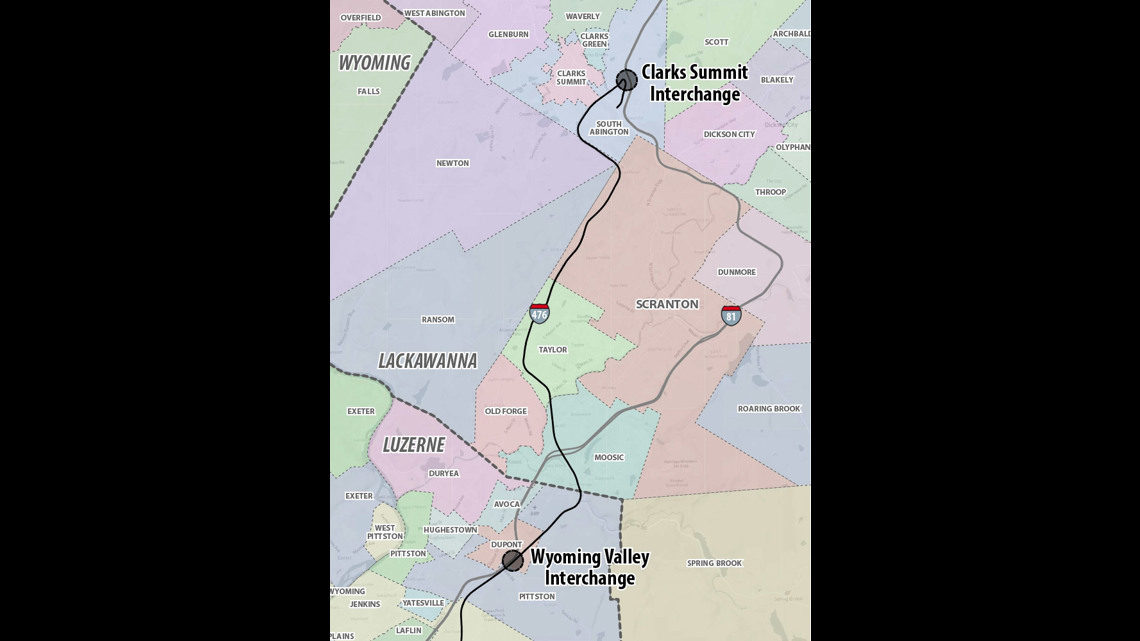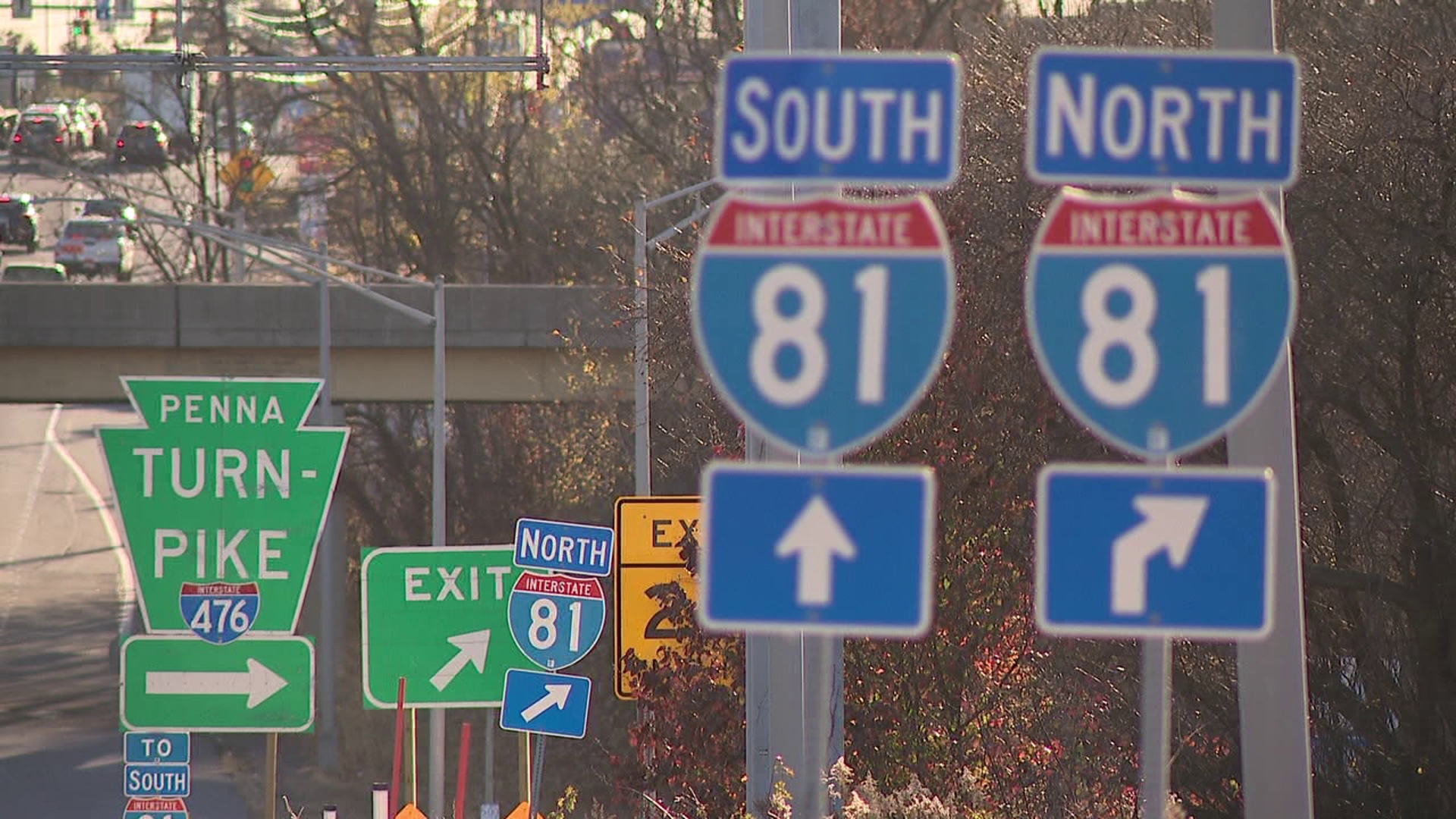YATESVILLE, Pa. — The PA Turnpike Commission hosted a public hearing on Wednesday for a $236 million plan to create a safe, reliable toll road system that will support national mobility and commerce.
The meeting was held at Pittston Area High School, and the public was invited to provide feedback on the environmental assessment. People who attended the meeting were not happy with the project. They told PennDOT that it was dated and that they could lose their homes.
On Thursday, another hearing will take place at Abington Heights High School starting at 5:30 p.m.
What is the project about?
The turnpike began planning for the Scranton Beltway Project eight years ago. After financial mandates held it up for a while, the project was resumed in 2021. The plan aims to ease congestion, improve safety, and support enhanced freight movement through one of the Commonwealth's critical tri-state corridors.
It requires linking Interstate 81 with the northeast extension of I-476 at two interchanges:
- One near the Wyoming Valley Interchange to the south of Scranton in the Borough of Dupont and Pittston Township
- Another near the Clarks Summit Interchange to the north of Scranton in South Abington Township


This link between the two highways would give a constant travel route around Scranton. The existing indirect connections between I-81 and I-476 will continue to exist. Funding for the Scranton Beltway Project comes directly from the 2013 passage of Act 89, Pennsylvania's comprehensive transportation funding measure.
"When completed, motorists will have another viable interstate-to-interstate option that keeps them moving more safely toward their destinations," said Pennsylvania Turnpike CEO Mark Compton in a press release.
The project's direct connection is predicted to shift regional traffic away from interchanges, reduce crash rates between interchanges, and relieve congestion on adjacent local roads.
The current challenges in the area are:
- Multiple I-81 corridor segments between Exit 175 and Exit 194 operate at or near capacity during peak morning and afternoon commuting hours
- An anticipated 72% increase in truck traffic by 2040, further increasing I-81 congestion
- Approximately 400 crashes during the four-year traffic student took place near the Wyoming Valley and Clarks Summit interchanges, which can be attributed to the area's 20 conflict points, or locations where motorists' paths merge, cross, or diverge
When could the changes happen?
The environmental assessment hearings are part of the preliminary design phase's final stages, which are expected to wrap up in early 2025. The project will then move into a final engineering design when the Federal Highway Administration issues a finding of no significant impact.
This phase is anticipated to last four additional years, with construction planned for 2030.

